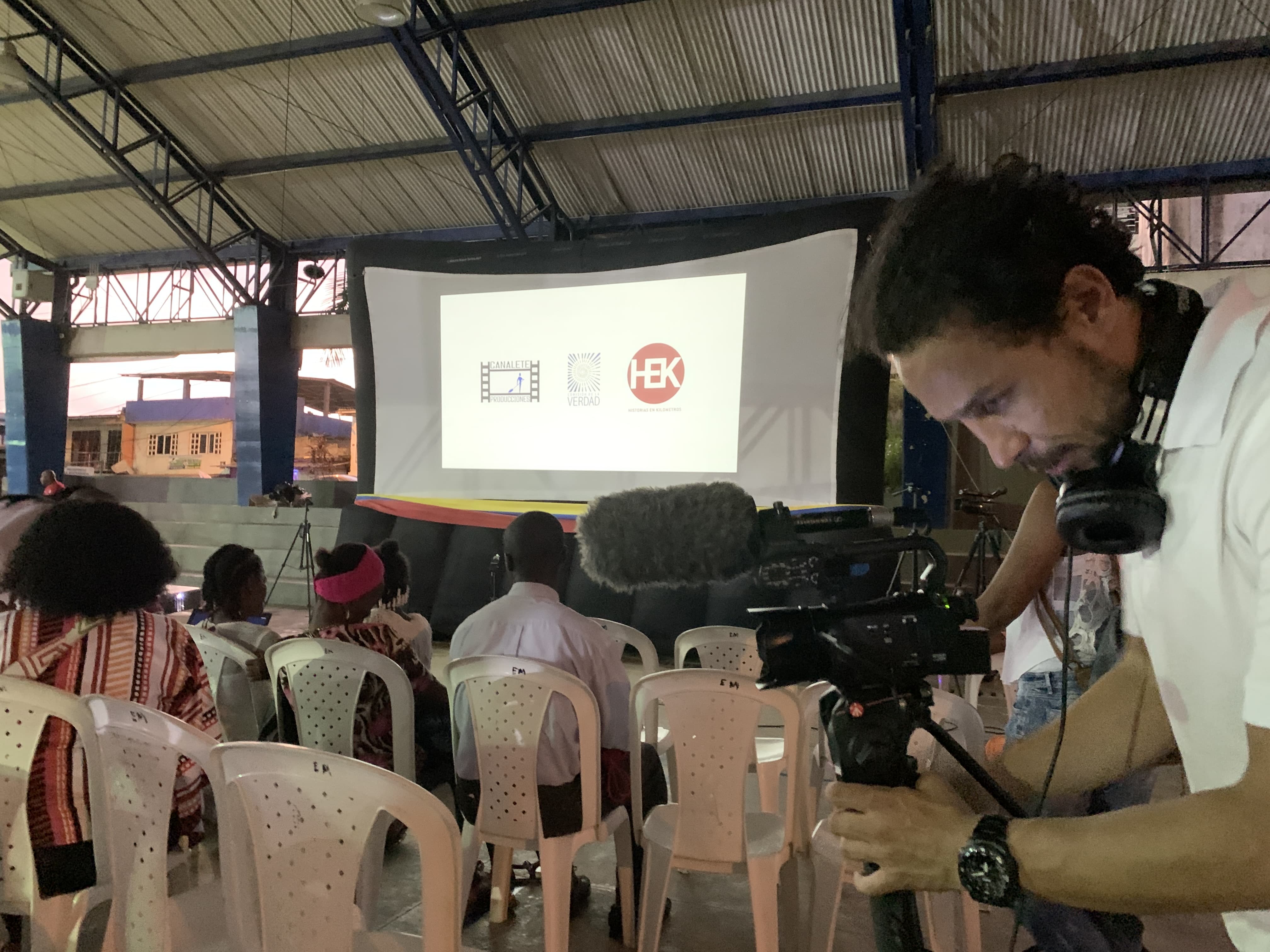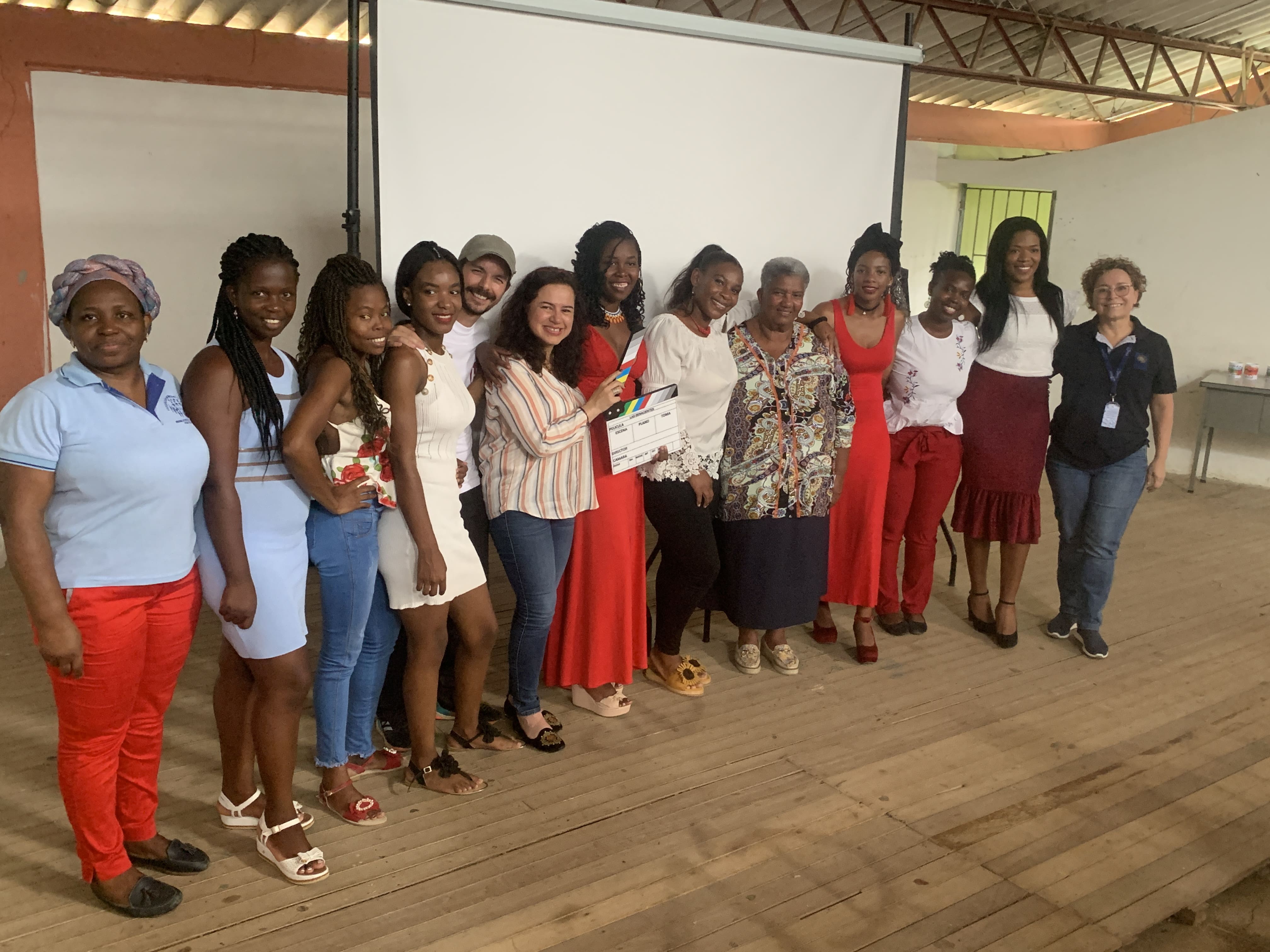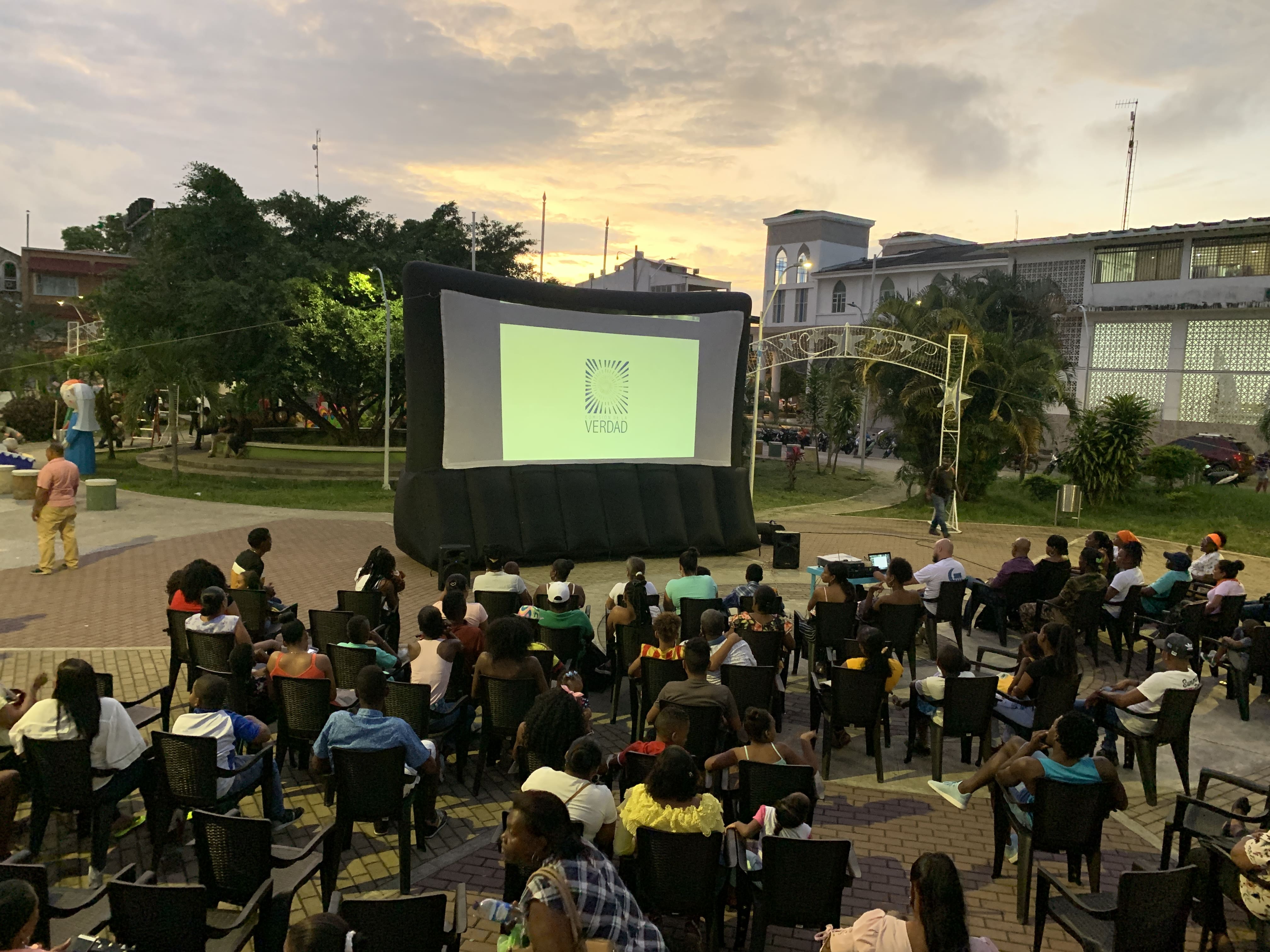Latin America, Visual Arts, Post-war Reconciliation, Trauma Healing

Truth Commission (TC) and Film is a collaboration project between the TC in Colombia and Historias en Kilometros (HEK). In 2018, TC's objective was the clarification of the patterns and explanatory causes of the armed conflict. Since this would have been a heavy report, not easy to read, with most of the population in Colombia illiterate, they found film and the working methodology of HEK to be the perfect fit.
The methodology of HEK was to work with invisible communities, suggested by TC, to teach them filmmaking in order for them to be able to tell stories about their life during the armed conflict, through their lenses. During the process, members of the community engaged in training would become artists/social leaders who would decide on how they want to tell the truth of their communities.
The project organised community cinema nights, where large screens were brought to communities that had never experienced such events before. This provided a powerful platform for communities to view their own stories and engage in conversations about their experiences. As a result of the project, the people who received the training within the communities evolved into production teams that became the official storytellers and social leaders of their own communities. They gained the knowledge and capability to tell their stories, ensuring that outsiders respected their narratives.
Check out other case studies from the same organisation International Community Filmmaking Festival and Life Happens Still.
Peace agreement between the Colombian government and the FARC was reached in 2016. While it marked a significant milestone, challenges remained in its implementation. These challenges included the reintegration of former combatants, land reform, political reconciliation, and combating other armed groups and criminal organisations that continued to operate in the country.
A big part of the peace process was immaterial reparation, which aims to restore the dignity of victims, acknowledge their suffering, and address the psychological and emotional impact of the harm they have experienced.
This psychological state of fear, of not being able to express yourself as it could potentially harm you or your loved ones, was the exact challenge HEK was working on with communities that experienced conflict, one that could only be solved with a clear understanding of the reality of each community and constant, horizontal, trust-building. The Truth Commission supported cultural and artistic projects that highlight the experiences of victims, raise awareness about their rights, and promote healing and reconciliation.

Storytelling about conflict experiences through film
Communities telling their own truths through film and expressing repressed emotions through film
Community discussions following the screenings


By empowering communities to be the creators of their stories related to the armed conflict, the project allowed individuals within these communities to become narrative representatives, portraying the truth about the conflict from people’s perspective; this is essential for the reconciliation process.

The project contributed to the concept of immaterial reparation, which is an essential aspect of the peace-building process in Colombia. It helped communities reclaim their voices and express themselves through filmmaking as part of their healing journey.

Through storytelling, these projects have facilitated healing and catharsis within communities that have experienced trauma, conflict, or displacement. Sharing their stories was a therapeutic process for individuals and the community as a whole.

What we realised is that the fact of having to be quiet, the fact of not being able to express yourself is something that is in the essence of a conflict - because you're scared. So we work to empower communities’ voices.
